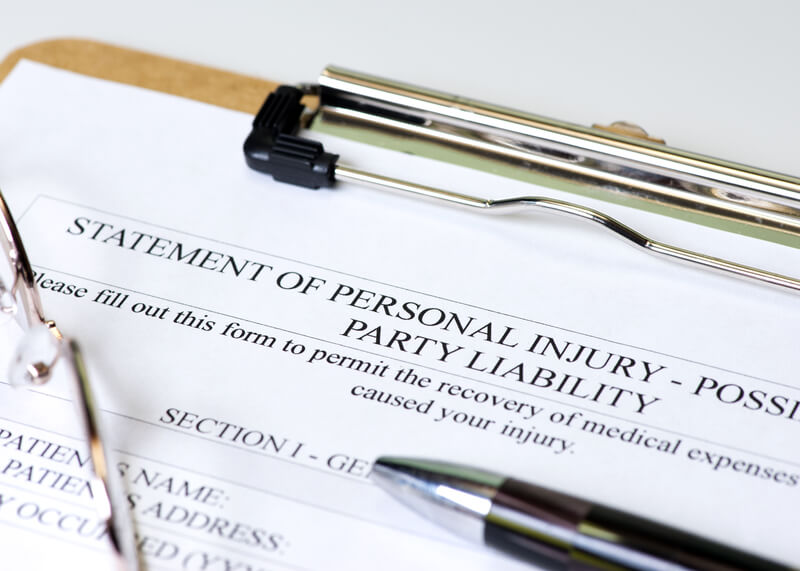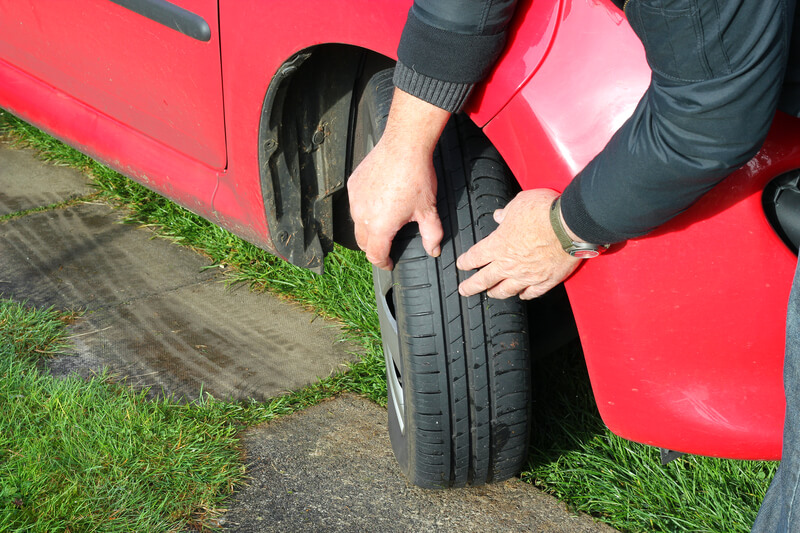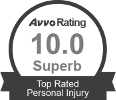When personal injury attorney Paige Wheeler meets with clients who’ve been injured in a car crash, she sometimes feels an added level of connection, especially when she’s working with teens or young adults. That’s because she’s been there—fighting to make it to prom, graduate on time and live independently at college, all while recovering from the injuries that nearly ended her life.
“Getting the right treatment can completely change your outcome,” said Paige. “I know that from my injury, and it’s why I got into what I do now. That’s how I can level with my clients.”
The crash that changed everything
On Feb. 17, 2011, Paige took a ride with her friend in his new Jeep—it was her senior year of high school, almost spring in that slow coast toward graduation and new things. When he made a left turn on a green light, they were T-boned and pushed through the intersection, the two cars fusing together in the heat. While her friend was safe, responders had to cut the Jeep in half to reach Paige, life-flighting her to Grady Memorial Hospital. There, she spent seven days in a coma, waking up on her dad’s birthday.
Paige’s memories kick in around her eventual transfer to the Shepherd Center; her only recollection of Grady is of a nurse who smelled like ice cream. But her dad, David, remembers each moment. He learned of the crash in a voicemail, his heart dropping when he saw a missed call from the Forsyth County Sheriff’s Office. After a 25-minute dash from Johns Creek to Grady, he joined his family in the ER waiting room. “That was a pretty tough night for a parent,” he said. “They wouldn’t let us back to see her, but every hour the doctor would come out and say they were still working.”
Paige had a severe traumatic brain injury, or TBI, and while her parents were first given an unimaginable diagnosis—that she might not recover cognitively or walk again—she was pushing herself to communicate on a white board while in the ICU. Her blunt sense of humor was still there, too. On the way to the Shepherd Center for inpatient rehabilitation, Paige asked the ambulance crew to stop at Chick-fil-A. “I remember them telling me that the ambulance wouldn’t fit in the drive-thru,” she said. “I asked, ‘Have you tried?’” (David pulled through with a combo the next day.)
Paige and her family felt supported at the Shepherd Center, where she went through daily rounds of speech, physical and occupational therapy for nearly two months. She struggled with confusion and confabulation, where the brain tries to fill in missing moments with false ones. “My memories from Shepherd are a little wild,” she said. “I was convinced my room was occupied by 20-year-old blonde twins.”
Paige’s voice was a whisper from being intubated at Grady, and doctors still weren’t sure if she’d recover the ability to walk. But because peer support is a key component of TBI recovery, Paige had plenty of visits from family and friends, plus group therapy sessions with other patients her age. “It was tough thinking of all the fun stuff I was missing out on,” she said. “But my therapists were instrumental for my mental and physical recovery. I love them all so much.”
Paige’s parents were also able to speak with a counselor at the Shepherd Center—feeling more traumatized by the stress of the accident than Paige, who had no memories of what she’d gone through. David remembers the uncertainty of Paige’s prognosis finally shifting after about a week and a half in rehabilitation. As the brain swelling subsided and Paige worked hard with her therapists, something mental clicked, too. “Her grandmother showed up with a catalog of prom dresses, planning to help Paige pick out one that would work in a wheelchair,” said David. “Paige gave her this look, and from that moment, I sensed she was just taking off on this steep curve of improvement. A few weeks later, we were walking out.”
Making her comeback
While Paige made a remarkable recovery, returning to school wasn’t easy. “I was young and cranky,” she said. “I wanted to be done with my injury, and I couldn’t stand that I wasn’t all better yet.” All of the special instructions—taking a buddy to transition between classes, wearing a gait belt to prevent falls, leaving class five minutes early—made her uncomfortable. She was also mentally behind. “My parents told me that sending me off to college that fall was so scary,” she said. “I was not cognitively 18, even though everything seemed hunky-dory normal to me by then.”
The crash had already changed the trajectory of Paige’s life. She describes her pre-accident plan quite simply as “nothing.” She’d been accepted to Georgia Southern University and figured she’d go there, party, graduate and eventually start a family. An acceptance to Kennesaw State University came while in rehab. Friends pushed her to attend the smaller, closer school, joining them in an open dorm room. “I’ll never say that I’m grateful for the accident, but it put me in the right places at the right time,” said Paige. “Of course, I didn’t know it then, but I needed a school without a big party scene, football and all that fun stuff so I could focus. I was teaching myself how to learn all over again, and, by God, I was going to get it down and make good grades and show that I was better.”
Paige eventually transferred to the University of Georgia, and after graduation, she went into corporate training in the energy consulting industry for a few years. But she wanted something more self-driven—something that challenged her. “Thinking about how much I loved my physical therapists, I started studying for the GRE,” she said. “But I remembered how much I hate feet and knew that wouldn’t work.”
Finally, Paige realized that her determined, assertive personality might fit best in law. She’d wanted to be a lawyer as a kid, a goal she remembered thanks to a time-capsule-type note to herself her fifth grade teacher had shared a few years earlier. Now, that goal finally seemed pressing enough to act on. “I reached out to my personal injury attorney—the one who’d represented me after my crash,” said Paige. He encouraged her, and Paige went on to attend Louisiana State University’s Paul M. Hebert Law Center, earning over $3 million in settlements her first year after passing the bar.
Now, at Litner + Deganian, Paige centers her practice on her clients’ physical and mental recovery. “I want to help people get better,” she said. “Disabilities are not always visible. Being at this firm—learning how to look at a diagnosis and understand more about the treatment process—it’s been amazing.”
Paige knows that she challenges the perception of TBIs, disabilities and lifelong care. “I take Adderall for my TBI, so I still see my doctor at Shepherd every three months,” she said. “Sometimes I wonder if this is all pretend; maybe I didn’t really make this incredible recovery and everyone is just being really nice to me.”
Today, Paige relaxes by tending to her houseplant collection, or hanging out with her husband and their cat, Rupert. She closed on her first home on the anniversary of her crash, inheriting a painting of herself dressed for prom in the process. “It’s a life-size painting, and it’s a little bit much for me to own at the moment,” Paige joked. But while Paige isn’t sure yet where to display this loving, if oversize, tribute to her recovery, her dad explained what it means: “When you go through an experience where you almost lose a loved one, you start making sure you don’t miss anything, that you memorialize as you go. Everything becomes a blessing.”












